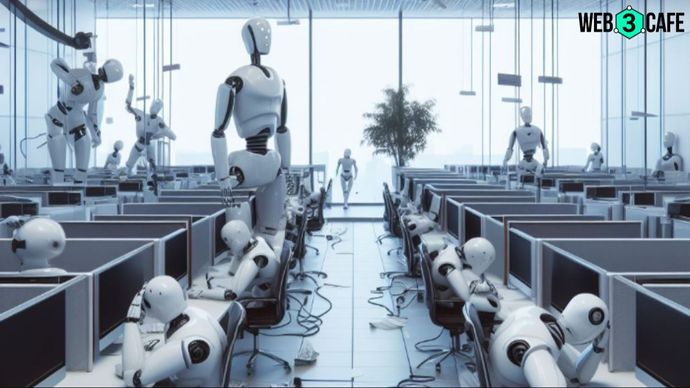Rising concerns: Generative AI poses greater threat to specific white-collar jobs
The study, titled 'Gen AI Proof Jobs' in Pearson's Skills Outlook report, highlights that white-collar jobs involving repetitive tasks, like scheduling appointments or answering calls, are more susceptible to automation by generative AI.

Highlights
- White-collar jobs are more susceptible to automation by Gen AI, says a report
- Generative AI could handle over 30% of specific white-collar tasks' time in India
- The report emphasises the importance of workers & employers adapting to this evolving landscape
According to a recent report by global learning company ‘Pearson,’ Generative AI, or Gen AI, is expected to have a more significant impact on white-collar jobs than on blue-collar roles. The report suggests that jobs in areas such as accounting and bookkeeping face a greater threat from generative AI, which can efficiently replicate many routine tasks.
What are blue-collar & white-collar jobs?
Blue-collar jobs entail physically demanding or manual labour, covering roles like those of farmers, mechanics, power plant operators, and electricians. These workers engage in hands-on tasks that often require specialised skills.
Conversely, white-collar jobs operate in office environments, encompassing clerical, administrative, and managerial positions. These professionals focus on desk-based responsibilities, utilising organisational and analytical skills within an office setting.
White-collar roles under threat
The study, titled 'Gen AI Proof Jobs' in Pearson's Skills Outlook report, highlights that white-collar jobs involving repetitive tasks, like scheduling appointments or answering calls, are more susceptible to automation by generative AI. In India, approximately 30 percent or more of the time spent on certain white-collar tasks can potentially be handled by generative AI.
"As employees look to the future, understanding which jobs are at risk from AI allows them to prepare. They should also consider where new roles might be created by Gen AI," remarked Pearson Workforce Skills President Mike Howells.
Balancing AI & human skills
The report emphasises the importance of workers and employers adapting to this evolving landscape. It suggests that a proactive approach, combining the strengths of AI and human skills, is crucial for navigating these changes successfully.
"Workers and employers should look at how they can ride this wave of change by using the best of AI and the best of human skills together."
Impact on the Indian job market
In India, the report identifies specific white-collar jobs that are more vulnerable to the influence of generative AI. Accounting and bookkeeping clerks top the list with a potential impact of 46 percent, followed by word processors and related operators at 40 percent, administrative secretaries and related associate professionals at 38 percent, stall and market salespersons at 30 percent, and accountants at 28 percent.
While blue-collar jobs are considered less susceptible to automation by generative AI, some roles will still be affected. Weavers, knitters, and related positions face a potential impact of 17 percent, along with basketry weavers, brush makers, and related work.
Weaving and knitting machine operators follow closely with a potential impact of 16 percent. Waiters and bartenders, as well as bakers, pastry, and confectionery makers, are also on the list with a 15 percent potential impact.
